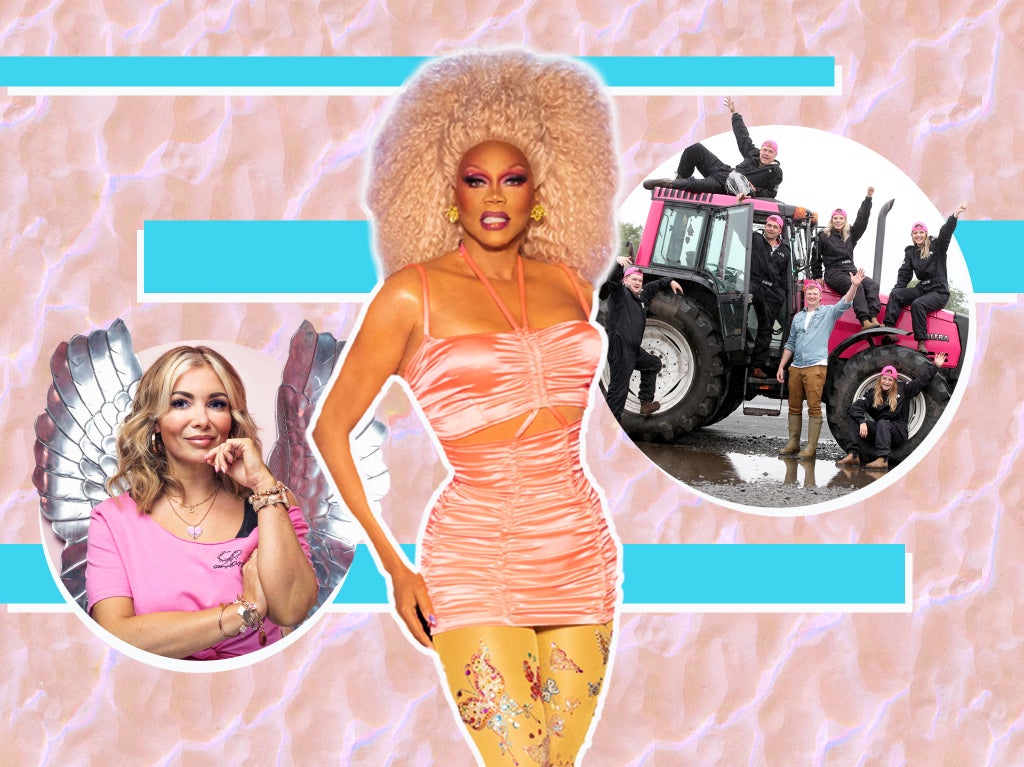
Many of you must be committed fans of Eating With My Ex. BBC Three has made the series a cornerstone of the channel’s return to terrestrial television, after five years in online-only exile. For those of you who haven’t seen it, the programme involves old flames being reunited for a meal. Over food and drink of varying appeal, they pick over the bones of their relationships, wondering where it all went wrong. Sometimes there is still a vibe. Sometimes they have reached an inert détente. Sometimes there is only bitterness and recrimination. You can guess which of these makes for better television.
It is perfectly snackable, as voyeuristic low-intensity formats go, but it’s not obviously the kind of unmissable television for which you would bring a channel back from the dead. Later this year, BBC Three will be leaning on Conversations With Friends, the adaptation of Sally Rooney’s first book by the same production team who brought her second novel, Normal People, to such horny life in 2020. In the meantime, viewers can look forward to The Fast and the Farmerish, a kind of Jeremy Clarkson ultra-tribute that combines Top Gear and Clarkson’s Farm into a single programme in which teams of young people race tractors.
As BBC Three’s return is inseparable from the debate about the future of the BBC, Eating with My Ex at least makes for a convenient metaphor. Two weeks ago, the culture secretary, Nadine Dorries, made an aggressive intervention in which she announced the licence fee would be frozen for the next two years, and so fall behind inflation. Beyond that, its days might be numbered. Her comments seemed timed to deflect criticism of the prime minister, but it’s probably not a coincidence they came at the same time as BBC Three’s reappearance. The relaunch was aimed at critics who claim the BBC is not doing enough to draw the 16-35 demographic, which is to say people who don’t wake up with Nick Robinson and go to bed with Victoria Coren. Eating With My Ex is part of an attempt to stake out the youth territory.
Being harsh, you might say the relaunch looks a bit desperate. Some wonderful stuff has come out of BBC Three. Not just the hits – Fleabag, Nighty Night, People Just Do Nothing, Pulling, This Country, Don’t Tell the Bride – but more niche ideas, like the brilliant Ron Jeremy: Fall of a Porn Icon documentary last November. But they came from a free, risk-taking philosophy, not because the results were available on Freeview. The return feels weirdly defensive and conservative. The BBC is fond of these pleas for gratitude. This week there was also a video promo doing the rounds, which highlighted their greatest hits over the years, a kind of “what has the BBC ever done for us”. What’s the point of these ads? The BBC’s problem is not reminding boomers and geriatric millennials that they made Ab Fab, it’s convincing the government that it’s right to charge 18-year-olds £150 a year when they get all their entertainment and news from TikTok, YouTube and streaming services. If the corporation survives for another century, it will not be because everyone fondly remembers Killing Eve.
It’s reductive to talk about the corporation as a monolith. Speak to people there, at least smart people under 40, and they all know the licence fee can’t last forever. A subscription model is the way forward. It needn’t spell doom. Armando Iannucci, no enemy to the BBC, has been arguing this for years. At an event last year, the BBC’s head of drama, Piers Wenger, summed up the case for the defence when he said that such a change would mean they were no longer making a “universal service”, and instead would be catering to customers. Although it sounds inclusive, it’s an old-fashioned way of thinking about it, which only makes sense when you have a monopoly on distribution. When the internet means we can pick and choose from international sources, mainly America, you need a different approach.
Defenders of the licence fee like to focus on the range of content we get for our 44p a day. It’s a backwards way of thinking about it. If the past 10 years have shown us anything, it’s that viewers are happy to pay a whole subscription fee for a single programme they love. The principle is the basis of Sky Sports’ football coverage and HBO, and it’s the reason Amazon paid all that money for Clarkson in the first place. Without me wishing to prejudge The Fast and the Farmerish, it seems unlikely to have quite the same pull.
The irony is that there is no reason for the BBC not to be confident. Even Netflix has struggled recently against its rivals, chiefly Disney, which can fall back on its vast libraries of IP, while it has to plough untold billions into new content. Like Disney, the BBC has an archive of internationally beloved properties. No need to make them, no need to market them; just stick them up and wait for the audience. Unlike those other companies, beholden to their shareholders, the BBC ought to be able to take a longer view. Phase out the licence fee over 20 years, so even your dad has time to adjust. The subjects on Eating With My Ex know that sometimes, it’s time to move on. And when you are in a race, having the right vehicle makes all the difference, as the contestants on The Fast and the Farmerish will find out.







